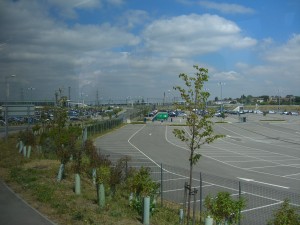The first interim appraisal report of HS1, the high speed link from London via Kent to the Channel Tunnel has been produced, and it does not make happy reading for supporters of HS2. Whilst HS1 or at least the link to the Channel Tunnel was a genuinely new railway, unlike the routes HS2 seeks to duplicate, it may have been felt it would have proven to have been an economic success. However, the report which the DfT commissioned shows it has not been as yet, and over the 60-year ‘lifetime’ of the project, it doesn’t look like it will either.
The report produced by Atkins, Aecom and Frontier Economics, has concluded that the net present value of the benefits of HS1 is £6.7bn, but the costs are at £12.6bn. This means that the net present value of HS1, calculated over a 60 year period is minus £5.9bn, or when the paltry wider economic benefits are added in, this figures comes up to a loss over 60 years of ‘just’ £4.57bn. At that rate, it would be well into the next century before HS1 breaks even.
Another way of putting it, is HS1 now has a benefit cost ratio pf 0.53, or 0.64 with wider economic benefits. In 2009, the official BCR with WEI was expected to be 1.76, which is worryingly exceptionally similar to the 1.7 phase one of HS2 is currently forecast to get.
The 150-page study said there was “evidence of early stage real estate and regeneration” along the route but insisted that these effects “could not be considered significant to date”. This fits with the fact that the only noticeable effect of HS1 in Ashford has been in increase in property prices as more people move there to commute to London.
It was originally claimed that the HS1 station in Ebbsfleet would promote economic growth and bring jobs to the area, but this has completely failed to happen. Last year, the Government waved the white flag and announced plans for a 16,000 home ‘garden city’ to be built to serve as a dormitory town for commuters to London, as the only way to get anything back from the project. This should serve as a warning to cities on the proposed HS2 line who have been promised economic benefits, just like Ebbsfleet was.
This official report follows on from highly critical reports on HS1 from both the National Audit Office and Public Accounts Committee, when both bodies said the lessons from HS1 have not been learned by those pursuing the HS2 project.


Pingback: STOP HS2 | NAO report – even with sale, Eurostar cost taxpayers billions